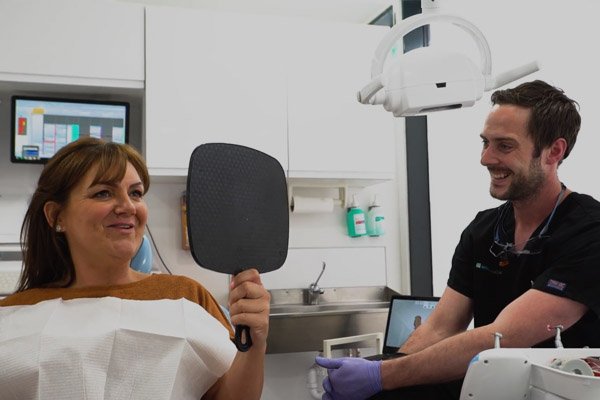When Should You Book An Appointment?
Do you have a throbbing pain in your tooth? Does it last for more that 60 seconds at a time? Is it effected by hot and cold foods or drinks? Does your tooth become more painful when you put pressure on it? Have you noticed a white spot on your gums?
If you have a combination of tooth ache you should contact your dentist immediately because you may have an abscess and may require a root canal treatment.
What is Root Canal Treatment?
A root canal treatment, or endodontics, is a dental procedure that treats the infection of dental pulp at the centre of a tooth. Infections are caused by the invasion of bacteria that lives in the mouth into a tooth. An infection is usually caused by tooth decay, leaking fillings or tooth damage due to impact, such as a fall or road traffic accident.
Teeth are made up of two main parts. The crown, which is the visible part of the tooth and the root that extends into the bone of the jaw, holding the tooth in position.
Teeth also consist of a hard outer coating called enamel, dentine that supports the enamel and forms most of the tooth, cementum that coats the surface of the root and dental pulp, which is the soft tissue at the centre of the tooth. The dental pulp sits inside of the root canal system, which extends from the crown of the tooth to the root's end. Some teeth have more than one root canal system.
Dental pulp includes nerves and blood vessels and it will start dying if it gets infected by bacteria. This infected bacteria is then very likely to spread until it seeps through a small hole where the blood vessels and nerves enter at the root of the tooth. This make the tissues around the end of the tooth red and swollen causing considerable pain, sometimes the face may become swollen in a dental abscess.
What is the Procedure for Root Canal Treatment?
Root canal treatment essentially involves the removal of all bacteria from within the root canal system. Once all of the bacteria has been removed, the root canal will need to be filled and the tooth sealed with a filling or a dental crown. The inflamed tissue at the end of the tooth will usually heal naturally.
Root canal treatments are usually carried out under local anesthetic, so it should not be any more painful than having a tooth filled. Teeth usually survive for up to 10 years after a root canal treatment.
Teeth need to be well cared for after this procedure and during the recovery. It is important to avoid biting down on hard food until well after the recovery period as advised by the dentist. Further root canal treatments can be avoided by maintaining good oral hygiene and avoiding sugary food. Smokers should also quit as this is another major cause of root canal infection.
If you are suffering from tooth ache contact your local NHS dental practice in Paisley, Clarkston, Bridge of Weir or Houston and book your consultation today.

